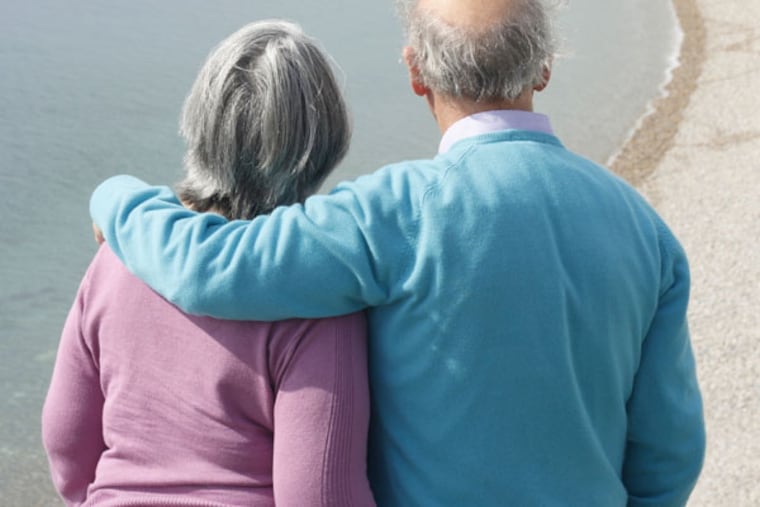Don’t be so quick to blame aches and pains on getting older, two Philly doctors say
Some symptoms, at any age, are signs of a disease.

“It’s just aging, right?”
This was an 88-year-old woman’s tentative and reluctant conclusion to why her left index, third and fourth fingers spontaneously contract and get stuck into her palm. Multiple times a day, she has to “un-stick” them. She demonstrated her maneuver.
She looked defeated as she awaited confirmation that this was, indeed, a sign of aging.
Creaky joints, getting winded walking up stairs, forgetting names. The list of challenges people encounter as they get older is long and our patients frequently ask, already resigned to their assumptions: “It’s just aging, right?”
» READ MORE: How you can change your views of aging and improve your life
We’ve learned that, often, the best answer is to not answer. Instead, we ask questions back. Patients ought to do the same. Before writing off an ache or pain as age-related, ask yourself these questions. Your answers are a key to living well as you age.
Is my symptom a sign of a disease?
Some symptoms, at any age, are signs of a disease. They need to be investigated, potentially diagnosed and, if necessary, treated. Chest pain, shortness of breath, unusually severe headache, getting lost on a familiar route — these are all signs of disease that could be more than “just getting older.”
There are so many symptoms that could indicate an underlying problem. You don’t need to learn them all — that’s what we’re here for. But you should learn to ask your doctor this simple question: “Could this be a sign of disease?” If the answer is “yes, it could be,” then a workup is needed.
Am I blaming something on aging to justify not seeking care for it?
As we age, we seem to live with more and more diseases. Denial is a useful way to cope with some of life’s problems, but generally not diseases — especially when symptoms cause you emotional distress or problems performing your daily activities.
Never mind whether the cause is disease or aging. Joint pain, constipation, intestinal gas, frequent urination, easy bruising, sexual dysfunction, and vision and hearing troubles are all medical issues that a doctor can help address. If either your well-being or ability to live your daily life is impaired, visit your clinician.
What should I expect of my body at my age?
Aging minds and bodies cannot maintain the same performance and endurance we experience at peak development. Studies of older adults free of disease show that gradual loss of physical strength and stamina, thirst, and the speed of cognition are common.
This doesn’t mean giving up a favorite activity, but it does suggest that dialing down the intensity can help you continue to enjoy it. Use less weight during gym workouts, take more breaks, and drink more water during activities. Slow down the speed of decision making.
» READ MORE: The diet that could help you live another 10 years l Expert Opinion
As our bodies and minds change with age, answers to these three questions can help you set your expectations. Always ask your doctor if your symptom could be a sign of a disease. And regardless of whether aging or disease is the cause, ask whether it can be treated with medicine, therapy, or an adjustment in activity. The key is to make sure your clinician knows what’s important to you.
There is an apocryphal story of the patient who tells his doctor, “It hurts when I do this,” and the doctor politely commands, “Then don’t do that.” That doctor is presumptuous. Only you know what brings you pleasure and purpose. The doctor’s task is to use the science of medicine to help you achieve that.
The 88-year-old with the “stuck” fingers is a gourmet chef. She needs dexterity. Tendon injections offered her low-risk relief. Good care, especially when you’re older, requires meaningful conversations with your clinician. Don’t settle for anything less.
Jeffrey Millstein is an internist and regional medical director for Penn Primary Care. Jason Karlawish is a professor at the Perelman School of Medicine and co-director of the Penn Memory Center at the University of Pennsylvania.